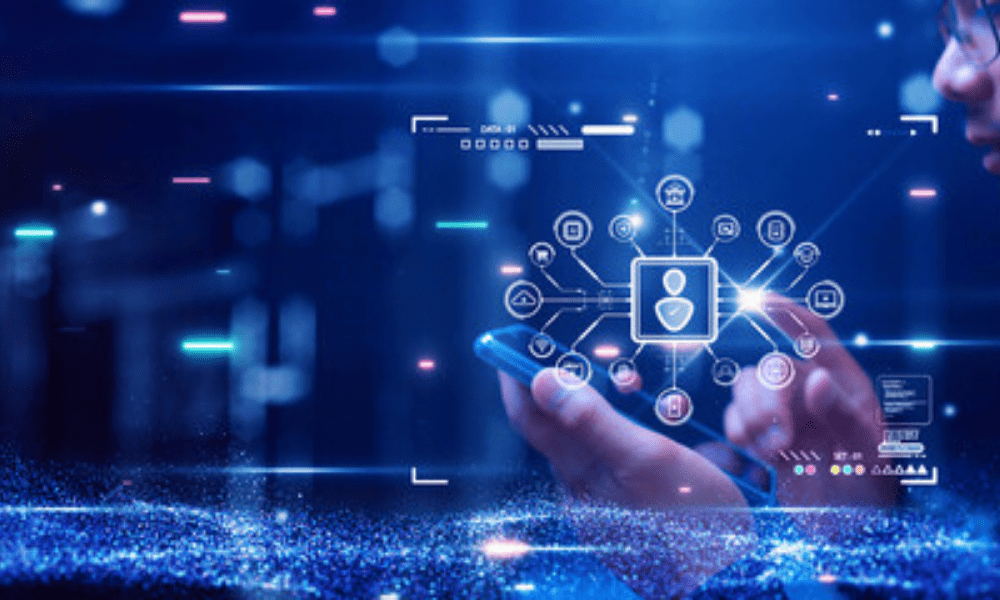L’évolution fulgurante du numérique et de l’intelligence artificielle au cours de la dernière décennie nous laisse entrevoir un futur où leur impact sur le parcours étudiant sera colossal. Mais alors, à quoi ressemblera la vie étudiante pour les générations futures ?
Le numérique et l’IA pour les étudiants de demain
Le numérique et l’intelligence artificielle permettront aux étudiants de demain d’avoir accès à :
- Des ressources pédagogiques variées et adaptées à leurs besoins, leurs préférences et leur rythme d’apprentissage. Par exemple, des plateformes numériques qui proposent des cours, des exercices, des vidéos, des jeux comme OZE 92 Yvelines sur lequel les étudiants se battent pour y avoir accès 🙂
- Des outils d’évaluation et de suivi de leur progression, qui leur donnent un feedback immédiat et personnalisé. Par exemple, des systèmes de reconnaissance vocale ou faciale peuvent analyser la prononciation ou l’expression des étudiants.
- Des espaces de collaboration et d’échange avec leurs pairs, leurs enseignants ou des experts. Par exemple, des réseaux sociaux éducatifs, des forums, des chats ou des visioconférences favorisent le travail en groupe et le partage de connaissances.
- Des opportunités d’innovation et de créativité, en utilisant le numérique et l’IA comme des outils de production et de diffusion de leurs projets. Par exemple, des logiciels de programmation, de montage vidéo, de création musicale ou de réalité virtuelle stimulent l’expression artistique et culturelle.
Le numérique : Une base incontournable de la pédagogie moderne

Dès le plus jeune âge, le numérique s’immisce dans la vie des étudiants. Tablettes, ordinateurs portables, et plateformes d’apprentissage en ligne deviennent des outils de base dans la trousse pédagogique. Plus qu’une simple mode, ils transforment en profondeur la façon dont nous apprenons et enseignons.
Pourquoi ? Parce que ces outils favorisent l’autonomie de l’élève, permettent un apprentissage personnalisé et rendent l’information accessible à tous, n’importe où, n’importe quand. Imaginez pouvoir suivre un cours depuis votre canapé ou revoir une leçon depuis un parc ! Les barrières physiques tombent.
Bon à savoir : Ipad ou PC portable pour un étudiant ?
L’IA : L’alliée inattendue du professeur
L’intelligence artificielle ne se contente pas d’assister les étudiants, elle joue aussi un rôle majeur pour les enseignants. À travers des systèmes de reconnaissance des besoins individuels des étudiants, l’IA peut signaler qui pourrait avoir besoin d’une attention particulière ou quel sujet nécessite d’être approfondi.
Ce n’est pas tout. Les outils d’IA peuvent également aider à la création de contenu pédagogique, rendre les évaluations plus objectives et offrir des retours en temps réel. En bref, elle vient amplifier les capacités des éducateurs plutôt que de les remplacer.

Les défis à relever
Cependant, tout n’est pas rose. Avec l’émergence de cette technologie, des questions éthiques se posent.
Comment garantir la confidentialité des données des étudiants ? Comment s’assurer que l’IA n’introduit pas de biais dans l’évaluation ou l’enseignement ? Des défis restent à relever pour assurer une intégration harmonieuse et éthique de l’IA dans l’éducation.
Les compétences du futur : Savoir évoluer avec le numérique
Il est indéniable que la maîtrise du numérique devient un atout indispensable sur le marché du travail. Les étudiants de demain devront donc développer une véritable littératie numérique. Il ne s’agit pas seulement de savoir utiliser les outils, mais aussi de comprendre leur fonctionnement, leurs enjeux et leurs limites.
Ainsi, au-delà des matières traditionnelles, il devient crucial d’introduire des cours sur la cybersécurité, l’éthique du numérique ou encore la compréhension des bases de l’intelligence artificielle.
Le rôle de l’humain à l’ère du numérique
Si la technologie offre des possibilités immenses, le facteur humain reste central. Il ne faudrait pas tomber dans le piège de voir l’IA et le numérique comme des solutions miracles.
L’empathie, la créativité et la communication sont des compétences intrinsèquement humaines et irremplaçables. Nous pensons donc que, bien que le numérique et l’IA soient des outils puissants pour enrichir le parcours étudiant, l’équilibre entre technologie et humanité sera crucial pour les générations futures.
L’avenir est empli d’opportunités passionnantes pour les étudiants. Le numérique et l’IA sont là pour les accompagner, les guider et enrichir leur parcours. Mais souvenons-nous que ces outils sont à notre service et non l’inverse.
En gardant à l’esprit la complémentarité entre homme et machine, l’éducation de demain sera une aventure riche en découvertes et en opportunités.




